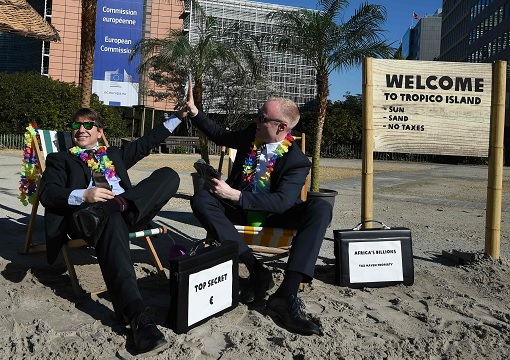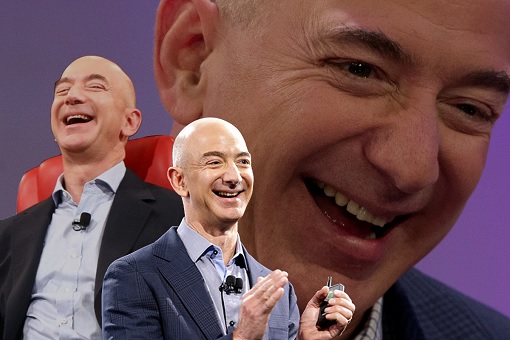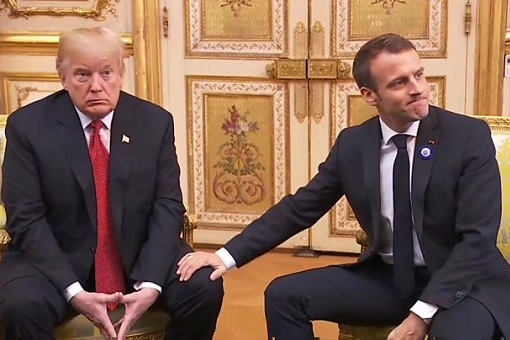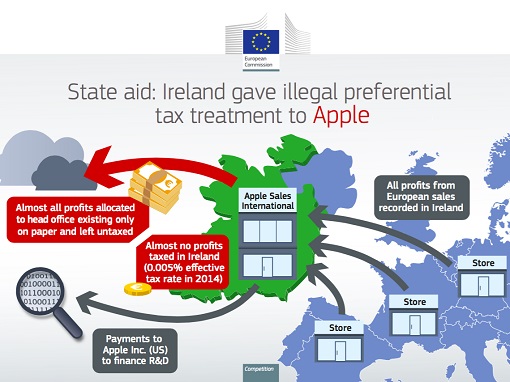Against the threat of retaliation – even trade war – from the United States, the French have decided to slap a new tax on American companies. On Thursday (July 11), France’s Senate approved “3% digital tax” on the revenues of multinational firms and tech giants like Facebook, Google and Amazon. Trump administration warned that such tax “unfairly” targets American companies.
A day earlier on Wednesday (July 10), President Trump ordered an investigation into France’s planned “digital tax” on tech companies. U.S. Trade Representative Robert Lighthizer said the U.S. will investigate whether the French tax “is discriminatory or unreasonable and burdens or restricts United States commerce.” If that warning sounds familiar, that’s because it is.
Apparently the U.S. was so upset about France’s proposed tax on American companies that it has threatened to use the same tariff law against the French the same way it has deployed against China. But clearly President Emmanuel Macron didn’t blink as French lawmakers approved the new law anyway, hence risking a US-France trade war.

The U.S. investigation, made under “Section 301” of the 1974 Trade Act, similarly used against the Chinese, allows the U.S. president to use tariffs as a weapon against a country’s trade practices if those policies harm U.S. companies. It could lead to the U.S. imposing tariffs or trade restrictions on French goods, hence potentially escalating the fight to a full-blown trade war.
Under the new rules, any digital company with revenue of more than €750 million (US$844 million; £670 million; RM3.5 billion) – of which at least €25 million is generated in France – would be subject to the digital tax. About 30 companies will fall under such rules – mostly U.S. companies such as Alphabet, Apple, Facebook, Amazon and Microsoft.
While the big tech companies said they are complying with national and international tax laws, the French government has argued that such foreign firms headquartered outside the country pay little or no tax at all. The European Commission estimates that on average traditional businesses face a 23% tax rate on their profits within the EU, while internet companies pay only 8% or 9%.

France has repeatedly argued that taxes should not just based on physical presence of a company. To be backdated to 1 January, 2019 the new 3% digital tax will be based on sales made in the country, and not on profits. Global tech companies have long been accused of seeking ways to avoid tax, by paying most of their taxes in the EU countries where they have their headquarters.
Therefore, the tech giants would have offices in countries like Ireland or Luxembourg, where the tax rates are very low. For example, Amazon UK paid only £1.7 million on its 2017’s tax bill – less than 0.1% of its £2 billion turnover. But after the introduction of the digital tax, Amazon said the French tax is “poorly constructed” and “discriminatory” against American companies.
Refused to be intimidated, French Finance Minister Bruno Le Maire said in response to the U.S. threat – “France is a sovereign state. It makes sovereign decisions on tax matters and will continue to make sovereign decisions on tax matters. Between allies, we can and we must resolve our disputes without resorting to threats.”

Mr. Bruno also argued that the tech giants make considerable profits thanks to French consumers, and thanks to the French market, they pay 14 percentage points of tax less than other businesses. The new tax is expected to bring in €500 million (US$570 million) of new revenue in 2019. French President Emmanuel Macron has said that taxing big tech more heavily is an issue of social justice.
The U.S. has already hit the EU with metals tariffs, and is threatening to impose tariffs against European cars. Trump, of course, could impose more tariffs under Section 301 of the Trade Act over subsidies for the plane maker Airbus. American manufacturer Boeing is on track to lose its No. 1 position as the biggest aeroplane manufacturer to Airbus, thanks to the 737 MAX crisis.
France is not alone in taxing tech giants who have been taking advantage of the loophole. Several EU countries, including the United Kingdom are considering new taxes on digital companies as part of an effort to better regulate the internet and capture more revenue from their businesses. The UK plans to levy 2% on digital services sold by companies with annual global revenue of at least £500 million.

In 2016, the European Commission ordered Apple to repay US$14.5 billion in owed taxes to Ireland, while Google has been fined 3 times for antitrust violations. The digital tax is just a temporary levy though. Paris has promised to drop its tax as soon as an international accord is reached at the Organization for Economic Cooperation and Development on cross-border tax rules for the digital era.
Other Articles That May Interest You …
- Zero New Orders For 737 MAX – Airbus To Overtake Boeing As World’s Biggest Plane Maker
- English The Most Valuable Language For Children – But Second Place Mandarin Chinese Is Catching Up
- Here Are The World’s Top-25 Most Powerful Countries For The Year 2019
- This Photo Says It All – G7 Summit In Chaos As Trump Refuses To Listen, Happily Clashes With Ally Nations
- Too Big To Be Governed – Facebook & Google Risk Being Broken Up In Europe
- Frexit!! – Macron Admits French Would Vote To Leave EU If A Referendum Is Held
- North African Attack Chinese In France – For Being Too Hardworking & Rich
- Apple Has More Cash Than Malaysia, France & Dozens Other Countries

|
|
July 12th, 2019 by financetwitter
|


|

|

|

|

|

|




























All this tax tariff started by orange trump and it will backfire on him. Instead of make America great again, the American farmers and tech companies are now paying heavily for his failed tariff tax.
Thumbs up for the French for standing up to this bullying. Dump the dumb trump.